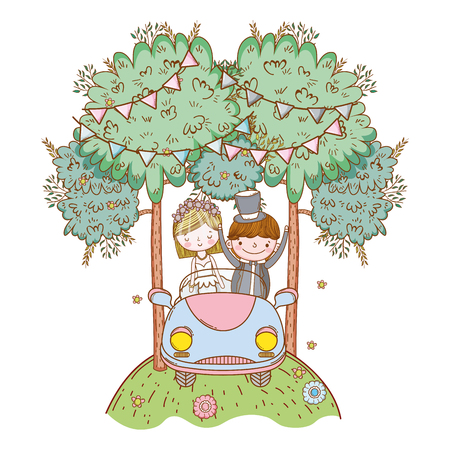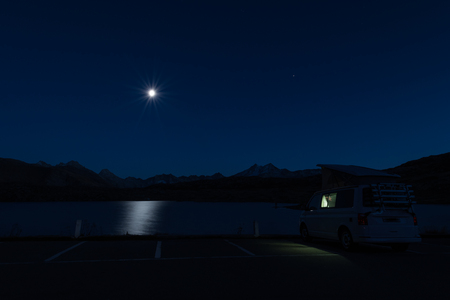Introduction to Stargazing in the UK
The United Kingdom, with its rolling countryside, rugged coastlines, and vast national parks, offers a surprisingly rich canvas for stargazing—especially when you combine it with the adventure of camping. Despite what many might assume about Britain’s famously unpredictable weather, there are countless nights throughout the year when the skies clear just enough to reveal a spectacular celestial show. For families with children, heading out on a camping trip presents not only an escape from urban light pollution but also a perfect opportunity to spark young imaginations. The simple act of lying back under a blanket of stars, torch in hand and breath misting in the cool air, transforms a regular holiday into an unforgettable exploration. Children are naturally curious, and the UK’s accessible dark sky reserves—from Northumberland to Exmoor—make it easy to introduce astronomy as both fun and educational. What better way to inspire little explorers than by letting them witness planets, constellations, and even the occasional meteor shower far from city lights? Stargazing while camping isn’t just about looking up; it’s about connecting as a family, fostering curiosity, and creating lifelong memories rooted in Britain’s enchanting natural landscapes.
Gear and Preparation: What You Need
Stargazing in the UK’s wild landscapes can be a magical experience for families, but the right kit makes all the difference. British weather is notoriously unpredictable, so being properly kitted out is essential for both comfort and safety. Here’s a breakdown of what you’ll need for a successful night under the stars with your children.
Essential Stargazing Equipment
| Item | Purpose | UK Tip |
|---|---|---|
| Telescope or Binoculars | Magnifies celestial objects; binoculars are lighter and more child-friendly. | Start with 7×50 binoculars for kids – sturdy and easy to handle. |
| Star Map or Astronomy App | Helps identify constellations and planets. | Use offline apps like Star Walk 2 due to patchy rural signal. |
| Red Torch/Headlamp | Preserves night vision while reading maps or setting up equipment. | Essential in dark sky sites; avoid using white light torches. |
| Campsite Chairs or Ground Mats | Makes long viewing sessions comfortable. | Packed mats work well on damp UK ground. |
| Thermos Flask (Hot Drinks) | Keeps everyone warm during chilly nights. | Brew up some hot chocolate – a British camping classic. |
Outdoor Clothing: Be Ready for British Weather
The UK climate demands layers. Even in summer, nights can get cold and damp. Dress children in thermals, fleeces, waterproof jackets, and woolly hats. Always bring spare socks and gloves—wet feet ruin any adventure. For footwear, wellies or waterproof boots are best if you’re off the beaten path. A lightweight blanket is handy for extra warmth when settled in for a long viewing session.
Tech Recommendations for Kids
- Astronomy Apps: Download apps before leaving home as rural Wi-Fi and mobile data can be unreliable. Try “SkyView Lite” or “Night Sky” which use AR to help kids spot constellations by holding your phone up to the sky.
- Portable Power Bank: Cold weather drains batteries fast—especially in smartphones used as star maps or torches. Pack at least one power bank per device.
- Walkie-Talkies: If you’re camping with multiple families or want to add an element of adventure, walkie-talkies let children communicate safely across the campsite without relying on mobile coverage.
Quick-Reference Kit List for UK Stargazing Campsites
| Must-Have Items |
|---|
| Telescope/Binoculars (child-appropriate) |
| Star map/Offline astronomy app |
| Red torch/headlamp (plus spare batteries) |
| Warm clothing layers & waterproofs |
| Sit mats/camping chairs & blankets |
| Thermos flask with hot drinks & snacks |
| Power banks & walkie-talkies (optional) |
A Final Word on Preparation
The key to making stargazing fun—and safe—for children while camping in the UK is preparation. With the right gear, suitable clothing, and just enough tech to keep things interesting without distraction, you’ll create unforgettable experiences that inspire curiosity about the universe above Britain’s rugged landscapes.

3. Choosing the Perfect Campsite for Stargazing
When it comes to stargazing with your children while camping in the UK, location is everything. The right campsite can transform an ordinary night under canvas into a celestial adventure your family will never forget. To maximise your stargazing experience, look for sites that offer dark skies, minimal light pollution, and a welcoming atmosphere for families.
Seek Out Dark Sky Sites
The UK boasts several official Dark Sky Reserves and Parks, specifically recognised for their exceptional starry vistas. Areas such as Northumberland National Park and Galloway Forest Park are renowned for their pitch-black nights and jaw-dropping views of the Milky Way. These designated spots are ideal if you want to introduce your children to constellations, planets, and meteor showers without the interference of city lights.
National Parks: Natural Astronomy Arenas
Many UK National Parks provide prime locations for amateur astronomers. Exmoor, Snowdonia, and Brecon Beacons have all earned Dark Sky status, offering both wild camping opportunities and established campsites within easy reach of excellent viewpoints. Campsites in these parks often host astronomy events or provide information on what to look out for in the night sky—a perfect way to nurture young curiosity.
Family-Friendly Campsites with Clear Skies
If you’re after convenience and comfort alongside clear skies, there are plenty of family-oriented campsites known for their commitment to stargazing. Look for sites that advertise low light policies, open field pitches, and facilities geared towards children—such as play areas or guided night walks. Locations like Kielder Campsite in Northumberland or Sykeside in the Lake District are favourites among families seeking both adventure and education under the stars.
Choosing the right campsite not only enhances your child’s interest in astronomy but also ensures everyone enjoys a safe and memorable outdoor experience. Before booking, check reviews from other stargazers and ensure that the site is accessible for children. With a bit of planning, your next camping trip could become a true voyage across the universe—without ever leaving British soil.
4. Making Astronomy Fun and Hands-On for Children
Stargazing during a camping trip in the UK offers a brilliant opportunity to introduce children to astronomy through practical, engaging activities. Under the vast British sky, you can turn learning into an adventure with hands-on experiences and simple games that spark curiosity.
Practical Activities for Young Astronomers
- Create a Star Map: Before your trip, print out star maps specific to your camping location and season. Encourage children to use red torches (to preserve night vision) and identify constellations, ticking them off as they spot each one.
- DIY Constellation Viewers: Use empty toilet rolls and black card to make constellation viewers. Punch holes in the card in the shape of a constellation, secure it over one end of the roll, and let children shine a torch through to project patterns onto their tent walls.
- Star Counting: Challenge kids to count how many stars they can see within a set area of the sky. This is a fantastic way to highlight the difference between urban and rural skies in Britain.
Astronomy Games Under the British Sky
| Game Name | Description | What You Need |
|---|---|---|
| Constellation Bingo | Create bingo cards with common UK constellations. The first to spot all wins. | Bingo cards, pens, star map |
| Shooting Star Hunt | Who can spot the most meteors during a meteor shower? | Blanket, patience, warm clothes |
| Astronomy Storytelling | Take turns inventing stories about mythical creatures or ancient legends based on constellations overhead. | Imagination! |
Encouraging Curiosity and Learning
The key to making astronomy enjoyable for children is interaction. Ask open-ended questions like “What do you think that bright star could be?” or “Why do you think some stars twinkle more than others?” Foster a sense of wonder by connecting what they see in the sky with tales from British folklore—such as the story of Orion or Cassiopeia—and challenge them to find these shapes themselves.
Tips for Success
- Dress warmly: Even summer nights can be chilly across UK campsites.
- Use simple language: Avoid overwhelming children with technical jargon.
- Keep sessions short: Young stargazers may have limited attention spans but will remember the excitement of discovery.
By blending practical activities with playful games, stargazing becomes not just educational but truly magical for children camping beneath the stars in Britain.
5. Understanding the Night Sky: British Constellations and Celestial Events
Stargazing in the UK can be a thrilling adventure, especially for children eager to unlock the secrets of the night sky. The British Isles offer a unique celestial panorama, with classic constellations and regular astronomical events that provide perfect learning moments under canvas. Here’s how to introduce key features of the night sky to young campers and keep them captivated.
Spotting Key British Constellations
Many of the best-known constellations are easily visible across the UK, even with its famously unpredictable weather. The Plough (or Big Dipper) is a favourite starting point for beginners—it sits high in northern skies all year round. Use it as a guide: follow the ‘pointer stars’ at its edge to find Polaris, the North Star, a vital navigation aid for centuries.
Another staple is Orion, easily recognisable by his ‘belt’ of three bright stars. Orion dominates winter evenings and can spark tales of ancient mythology around the campfire. In summer, help children search for the Summer Triangle, formed by Vega, Deneb, and Altair—these bright stars are hard to miss even on a mild British night.
How to Spot Planets from Your Tent
You don’t need a telescope to spot planets; just a clear view and some patience. Jupiter and Venus are often the brightest objects after the Moon, easy to pick out with the naked eye. Saturn’s golden glow sometimes peeks through late in summer, while Mars appears as a distinct reddish dot.
Encourage kids to keep a notebook handy—charting where and when they see these planets adds an element of adventure and scientific enquiry. Apps like “Star Walk” or “SkyView” use augmented reality to help pinpoint planets quickly, making tech-savvy children feel like true explorers.
Unmissable Local Astronomical Events
The UK calendar is packed with celestial spectacles perfect for young stargazers. The Perseid meteor shower each August offers shooting stars aplenty—a great excuse for a late-night hot chocolate session. The Lyrids in April and Geminids in December also put on impressive shows.
Lunar eclipses are often visible from Britain, turning the Moon an eerie shade of red—a guaranteed talking point! Occasionally, if you’re lucky enough to be camping in Scotland or Northern Ireland during periods of high solar activity, you might catch a glimpse of the elusive Northern Lights. Make sure children know these events are rare treats worth staying up for.
Making Astronomy Relatable
Tie your stargazing sessions into British history and folklore—stories about ancient navigators using Polaris or tales from local legends tied to certain constellations give extra meaning to what children see above them.
Final Thoughts
With a bit of preparation and enthusiasm, the UK’s night sky becomes an open-air classroom full of wonder. By introducing constellations, planet spotting tips, and newsworthy celestial events, you’ll ensure every camping trip sparks curiosity that lasts long after dawn.
6. Safety and Etiquette: Stargazing in the British Outdoors
When venturing into the great British outdoors for a night of stargazing with children, safety and proper etiquette are paramount. The UK’s unpredictable weather means preparedness is not optional—it’s essential. Always check the latest Met Office forecast before setting out. Pack waterproof clothing, extra layers, and sturdy boots to keep everyone comfortable and dry. A torch with a red filter is ideal; it preserves night vision while helping you navigate uneven ground safely.
Weather Preparedness
The British climate can turn in an instant, especially in remote areas like the Lake District or Scottish Highlands. Teach children to respect nature’s power by bringing appropriate gear: thermal blankets, hats, gloves, and a well-stocked first aid kit. Set up camp on high ground if possible to avoid dampness, but never too close to cliff edges or rivers that could swell overnight.
Wildlife Awareness
The UK countryside is home to foxes, badgers, owls, and hedgehogs—wonderful to observe but best left undisturbed. Remind young campers to keep food stored securely and all rubbish packed away. Avoid loud noises after dusk; not only does it enhance your stargazing experience, but it also ensures you don’t disrupt local fauna on their nightly routines.
Respecting Fellow Campers
British camping culture values peace and privacy. When sharing a site with others, keep torches pointed downward and voices low after dark. If you’re using telescopes or binoculars, set up your kit away from footpaths and ensure cables or tripods aren’t tripping hazards for others passing by. Always leave your pitch as you found it—if not better—to preserve these special wild places for future explorers.


